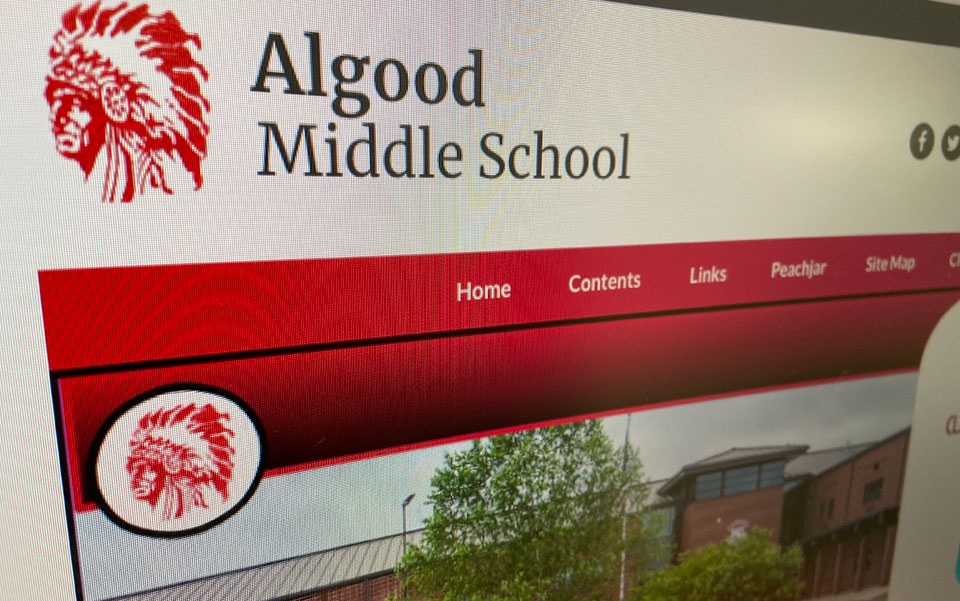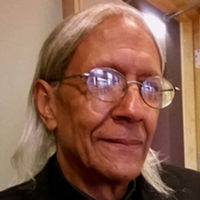
COOKEVILLE, Tenn.—This small university town about 80 miles east of Nashville has joined the legion of other municipalities in the U.S. facing the issue of Native mascots used by school sports teams. On a pleasant Saturday afternoon, May 1, several dozen demonstrators led by Chiricahua Apache and Sayota Knight marched from the campus of Tennessee Tech University to the Putnam County Courthouse to hold a rally demanding the removal of the mascot name “redskins” by local Algood Middle School from its football and other athletic teams.
On their way to the courthouse, the marchers chanted, “Hey, hey, ho ho, that racist mascot’s got to go,” “ No hate in our state,” and “Change the name.”
Speaking against the mascot name, Knight and others, including Zeke Reedy of the Muskogee Creek Nation, pointed out that Native Americans for decades have been opposing the use of Indigenous sports mascots and names by U.S. schools and sports teams.
Knight, who lives in Cookeville with his wife and children, has been waging the anti-mascot campaign for two years. Algood Middle School has been using the mascot name “redskins” for years. The school also has a Native logo with a headdress on its website.
Across Tennessee, over 80 schools still have “Native American” sports mascots, logos, and symbols.
The Putnam County School Board, which oversees Algood Middle School had said last year that consideration would be given to the removal of the offensive mascot name. Subsequently, without notice to Knight, the Board had an unscheduled meeting in February and voted unanimously to keep the noxious name. The irrational reason of “honoring” Native people was put forth.
Corby King, the Director of Schools for Putnam County, with whom Knight had been in contact, did not return a message asking for comment. But, the Board’s Communications Supervisor, Hanna Davis, speaking in his stead, did contact this reporter and advised that there were no plans to give further consideration to the issue. Davis said that all of the Board members had received numerous phone calls from parents expressing opposition to a name change.
The racist idea of honoring Native Americans with mascots, symbols, and cartoonish images has been used across the country for decades by bigoted forces. The argument against mascots is on the one hand very simple. Native people obviously have the intelligence, ability, and right to decide what is honoring and what is not, but racist white people have concluded that the Indigenous do not have enough sense or intelligence or the moral imperative to make the decision. Therefore, the racists assert they have the right to make the decision regarding what is honorable as we don’t have the intelligence to decide for ourselves. How much more racist can they get?

The National Congress of American Indians (NCAI) has long realized the iniquity of the use of mascots. It has vehemently opposed the use of Indian mascots since 1968, for 53 years. The NCAI played a major role in the Washington Football Team’s decision to retire its “redskins” name and logo in July 2020.
The NCAI was founded in 1944 to promote advancements in Indigenous well-being, protect and strengthen tribal sovereignty, and educate the mainstream public on Native cultures. The Congress represents 574 Native nations, comprising 5.2 million Native people. But, yet these racists have the nerve, the unmitigated, racist gall to arrogate to themselves the ability, the intelligence, and the right to determine what is honoring to Indigenous people.
Use of the symbols called “harmful”
In a resolution passed by the NCAI in 2005, the organization stated, “The use of Native American sports mascots, logos or symbols perpetuates stereotypes of American Indians that are very harmful.” The resolution continued, “Research has shown that the continued use of American Indian mascots, symbols, images, and personalities has a negative effect on not only American Indian students but all students.”
The term “redskin” originated with the practice of white settlers who, after killing Indigenous people, would cut strips of skin from their bodies to be used for razor straps and horse bridles. It entered the lexicon of the English language on a widespread basis in the early 19th Century and also referred to the red scalp or other body parts collected for monetary bounty.
In parts of California in the middle 19th century, bounties were paid by municipalities for Native heads. The local white settlers were more than obliging by bringing in heads by the sack load for payment by town officials. In 1856, the state of California paid 25 cents for each Native scalp, no exceptions made for any Indigenous man, woman, child, infant, or elder who fell into the clutches of these murderous settler militia companies. This was genocide for pay.
These inhuman, barbaric practices were lauded by the townsfolk, and yet the Euro-Americans had the audacity to call Native people “uncivilized.”
In Cookeville, there have been attacks by racist forces. Knight reported that his mailbox had been turned over, garbage thrown on his lawn, and rocks thrown at his house. But he has vowed to continue the struggle for the removal of the racist mascot names.

MOST POPULAR TODAY

High Court essentially bans demonstrations, freedom of assembly in Deep South

UN warns that Israel is still blocking humanitarian aid to Gaza


Resource wars rage in eastern Congo, but U.S. capitalism only sees investment opportunity

U.S. imperialism’s ‘ironclad’ support for Israel increases fascist danger at home






Comments